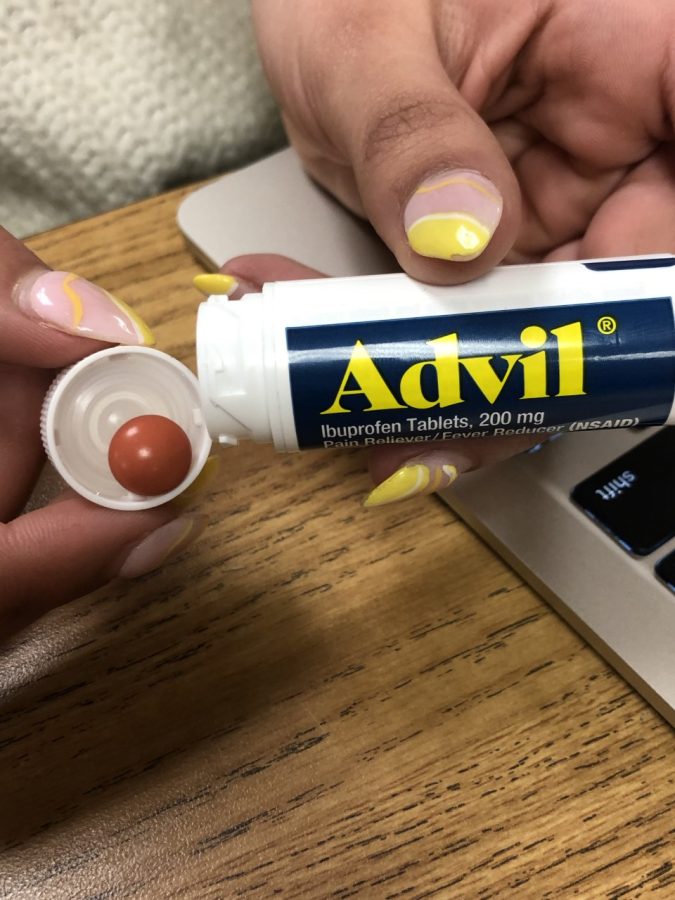Relief versus reprimanding
Runny noses. Red eyes. A pounding headache. Allergy season is upon us, and with it comes an increase in the number of students begging for medication from teachers and faculty. However, federal regulation prohibits school teachers from dispensing medication to students, forcing many to endure the nuisance of allergy symptoms for eight hours.
“[On having spring allergies], some days are pretty bad depending on how strong the wind is with it moving the pollen around. Carrying medication would be good, but it should be doctor prescribed,” Oliver Ellsworth, freshman, said.
States are generally granted the discretion to advise how schools handle the medication distribution, from Advil to prescription pills. Traditionally, students that require medication must store it in the nurse’s clinic and have proper documentation and permission. However, this process is inconvenient and cuts into a student’s learning time.
“Traditionally, the role of providing direct care to students, including administering medications and assisting with acute medical problems, has fallen to the school nurse. Unfortunately, budget cuts have caused many schools to forgo staffing of full-time school nurses who are able to provide care for students with medical needs,” National Library of Medicine said.
While it is believed teachers themselves should not necessarily have the authority to provide medication, students in middle and high school should have the liberty to make their own medical choices regarding their personal supply— as long as it is FDA (Food and Drug Administration) approved. Generally, pain relievers such as Advil and Ibuprofen are harmless when taken in small quantities. Hundreds of students already smuggle allergy pills and Excedrin in their backpacks and sneak it in between classes, and within minutes, they have improved focus, energy, and relief.
“I believe students should be responsible enough to be able to carry their own medicine with them. Most parents trust their kids enough to do the right thing. Leaving class to go get medicine [from the nurse] is so inconvenient,” Lauren Howe, senior, said.
The penalty for possessing prescription medication or nonprescription drugs can be as severe as immediate expulsion and even arrest. While allowing medication use at school can pose a potential liability, incidents are unlikely in the hands of responsible teenagers, especially considering that the majority of students already discretely use medication during school hours. Teachers and administrators disrupt learning when they pull students out of class for using pain medication. Obviously, excessively strong pain relievers such as Oxycodone and Morphine have no place on an academic campus. However, mere anti-inflammatory and analgesic drugs such as Aspirin and Tylenol pose virtually no threat to students and even improve their well-being in class.
“Public schools generally do not allow students to self-administer medications, since it could open the school to liability and abuse problems (such as students selling prescription drugs to other students),” FindLaw said.
When it comes to the debate regarding whether teachers should have permission to dispense medication to students, the lines are not as clear. If teachers were allowed to provide medication, it would pose a liability regarding the safety of students. Teachers should obtain a certain certification that allows them to handle minor medical situations and provide medication.
“I think students should be allowed to carry medication on campus because some things can just happen on the spot. They may not have time to make a trip to the nurse’s office, and they may just want the quick relief,” Daniella Villanueva, senior, said.
Teenagers are at the cusp of adulthood and should be treated as such regarding certain matters, such as handling drugstore medications. When it comes to academic dedication or distraction from discomfort, students should have discretion.










